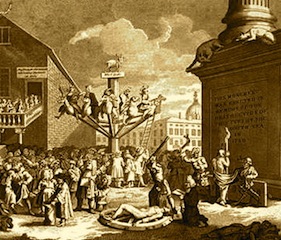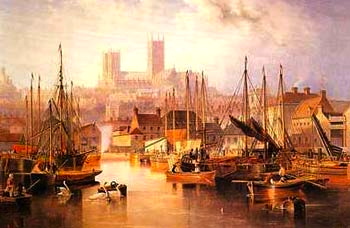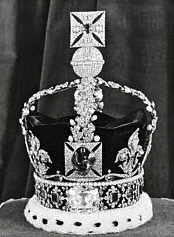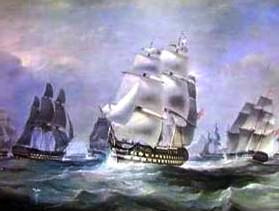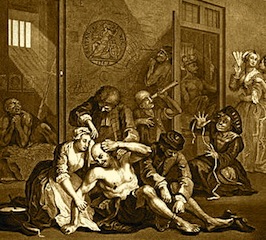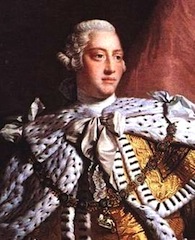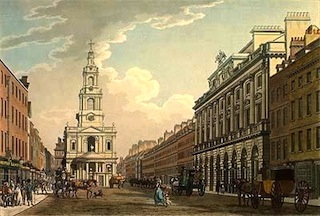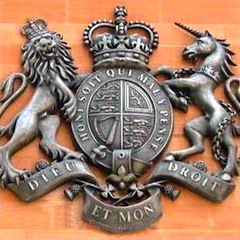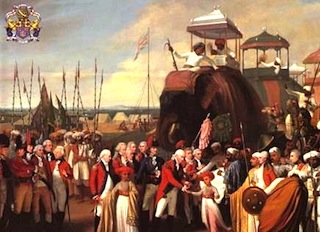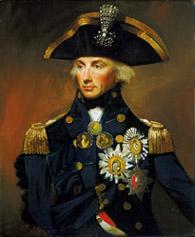|
When Britain first, at Heaven's command,
Arose from out the azure main,
This was the charter of the land,
And guardian angels sang this strain:
"Rule, Britannia! Britannia rule the waves;
Britons never, never, never shall be slaves." |
The nations not so blest as thee,
Must in their turn to tyrants fall,
Whilst thou shall flourish great and free,
The dread and envy of them all.
"Rule, Britannia! Britannia rule the waves;
Britons never, never, never shall be slaves." |
|
óJames Thomson (1700-1748) |
GREAT
BRITAIN, at the height
of its power, controlled a quarter of the world's population,
a fifth of its dry surface, and enjoyed unchallenged mastery over
its oceans. This course surveys the remarkable history of the British
Isles from the Glorious Revolution of 1688 to the end of the Napoleonic
War in 1815. The shaping and reshaping of this unique nation state
during the "long eighteenth century" will be examined with regard to the
history of the European continent, the Atlantic world, and Britain's
expanding empire. At various times we will attempt to understand how
politics, diplomacy, warfare, commerce, science, industry, technology,
art, literature, music, and migration all interacted to help shape
Modern Britain.
This course is designed to engage us at two levels. It is primarily
an empirical history of Britain from the late seventeenth century
to the beginning of the nineteenth century. Yet in the process,
it forces us to examine what it means to be "British," a "nation,"
and a "people." How did the English, Scots, Welsh, and Anglo-Irish
come to view themselves as "British?" How did the political, social,
technological and economic revolutions of the period combine to
transform this European backwater into the world's most powerful
nation? We will keep these and other questions in mind as we examine
the historical development of Britain during its "Age of Revolution."
Readings for this course will combine historical scholarship with
literature, documents, and music from the period.
Students are encouraged to view all of these sources as historical
texts and to consider broader questions about the nature of culture,
gender, religion, technology, monarchy, and national identity. Through
the critical study of history, we encounter ourselves, and the world
in which we live, in new and interesting ways.
This is an introductory course for which there are no prerequisites; students
from other disciplines are welcome. This course counts as an elective in the
ethnic studies minor. HIST 222 also satisfies the following three categories
for
General Education: (1) Historical Perspectives, (2) Global Perspectives,
and (3) Culture, Power, Identity.
|


